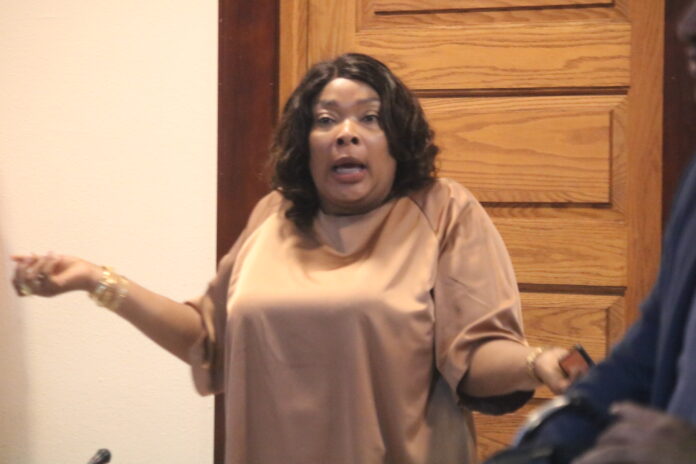—urging legislative reforms, alternative livelihood support for traditional practitioners
Bong County Distract # 6Representative, and Chair on Gender Committee, at the 55th national legislature Moima Briggs Mensah, has called for stronger government action to end the Female Genital Mutilation (FGM) practice, urging legislative reforms, alternative livelihood support for and survivor, traditional practitioners, and community education.
Representative Briggs-Mensah served as the keynote speaker at a program where she acknowledged Liberia’s cultural heritage but stressed that harmful traditions must be eliminated. She criticized the continued licensing of FGM practices despite executive orders banning them and called for the government to enforce existing laws.
“Is it because we have the power to protect our own children while those in rural areas do not?” she asked, emphasizing the need for equality in protection.
The event was organized by the Ministry of Gender, Children, and Social Protection (MOGCSP) in Collaboration the Ministry of Internal Affairs (MIA) and UN Women. International Day of Zero Tolerance for Female Mutilation (FGM).
The International Day of Zero Tolerance for female genital mutilation (FGM), is an event observed annually on 6 February, it provides an opportunity for all stakeholders involved in ending FGM to celebrate achievements, advocate for abandonment of the practice and raise awareness.
This year’s event is being held under the global Theme: “Her Voice, Her Future” National Theme: Her Voice, Her Future: Let’s Act Now by Ending FGM and Preserving Our Heritage.”
Gender Minister Gbeme Horace- Kollie, also reaffirmed the government’s commitment to ending FGM, highlighting its severe health risks, including excessive bleeding, infections, and childbirth complications.
“We gather to reaffirm our collective commitment to ending Female Genital Mutilation (FGM) and ensuring a safer future for the girls and women of Liberia. FGM is not just a violation of human rights; it is a grave public health concern that has devastating consequences on the well-being of countless girls.”
According to her, the physical, psychological, and reproductive health risks associated with this harmful practice are well-documented, ranging from excessive bleeding and life-threatening infections to complications during childbirth, chronic pain, and trauma that lasts a lifetime. We cannot allow this practice to continue robbing our girls of their health, dignity, and future.
As we strive to eliminate FGM, we recognize the cultural and traditional significance of bush schools and heritage centers, which have long played an essential role in our communities. However, the aspect of cutting is detrimental to the health and development of an entire generation. This is why we must fully embrace alternative rites of passage that preserve our traditions without causing harm.
Minister Horace- Kollie praised traditional leaders who have transitioned bush schools to non-cutting alternatives and called for national legislation to permanently criminalize FGM.
The UN Resident Coordinator in Liberia, Christine N. Umutoni noted that this year’s commemoration is significant as the country assesses its progress toward the 2030 Sustainable Development Goals, particularly gender equality. She urged stronger collaboration, media engagement, and policy reforms to eliminate all forms of gender-based violence.
Despite a three-year moratorium on FGM, reports indicate that the practice continues in 11 out of Liberia’s 15 counties. With the moratorium expiring on February 5, 2025, officials stressed the urgency of renewing it and pushing for a permanent legal ban.
The Minister of Gender Minister, Horace-Kollie, announced plans for high-level stakeholder discussions, including legislative reviews and heritage center assessments, to ensure sustainable enforcement of anti-FGM measures.
The call to action comes amid growing advocacy for the protection of women and girls in Liberia, with civil society organizations and international partners urging immediate and decisive steps to end FGM once and for all.
FGM remains one of the worst forms of human rights violations, affecting over 230 million girls and women worldwide, causing dire consequences in the form of physical and psychological harm.
According to The UNFPA-UNICEF Joint Programme on the Elimination of FGM, since its inception in 2008, has been advocating and undertaking multispectral approaches, partnering with wide stakeholders at global, regional, and national levels, to put an end to the harmful practice



